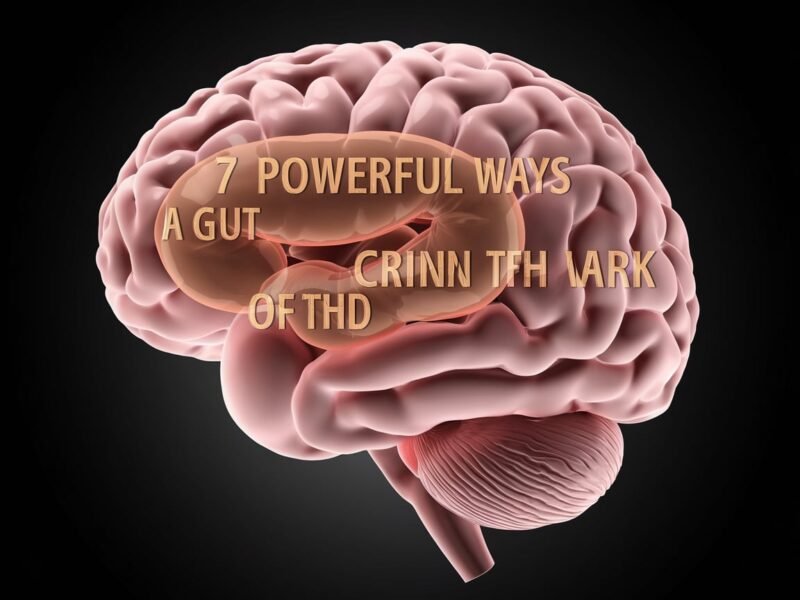Mental health care is a vital aspect of overall well-being, encompassing various services, treatments, and support systems aimed at improving mental health. In an increasingly fast-paced and complex world, understanding mental health care is crucial for individuals seeking to improve their emotional, psychological, and social well-being. This article will explore the importance of mental health care, various treatment options, self-care strategies, and resources available for individuals facing mental health challenges.
The Importance of Mental Health Care

Mental health affects how we think, feel, and act. It influences our ability to handle stress, relate to others, and make choices. Here are some key reasons why mental health care is essential:
- Improved Quality of Life: Mental health care can lead to a more fulfilling and productive life. By addressing mental health issues, individuals can enhance their relationships, work performance, and overall life satisfaction.
- Prevention of Mental Illness: Early intervention and regular mental health care can prevent the development of more severe mental health conditions. This can lead to better outcomes and reduced healthcare costs in the long run.
- Support for Coping Strategies: Mental health care provides individuals with tools and strategies to cope with stress, anxiety, and other emotional challenges. This support can improve resilience and overall mental health.
- Reduction of Stigma: Seeking mental health care helps to normalize discussions around mental health issues, reducing stigma and encouraging others to seek help.
- Physical Health Benefits: Mental health is closely linked to physical health. Addressing mental health issues can lead to improvements in physical health, reducing the risk of chronic diseases.
Common Mental Health Conditions

Understanding the common mental health conditions can help individuals recognize the need for mental health care. Some prevalent mental health disorders include:
- Depression: A mood disorder characterized by persistent sadness, loss of interest in activities, and a range of physical and emotional problems.
- Anxiety Disorders: Conditions such as generalized anxiety disorder, panic disorder, and social anxiety disorder that involve excessive worry, fear, and apprehension.
- Bipolar Disorder: A mental health condition marked by extreme mood swings, including emotional highs (mania) and lows (depression).
- Schizophrenia: A severe mental disorder that affects how a person thinks, feels, and behaves, often involving delusions and hallucinations.
- Post-Traumatic Stress Disorder (PTSD): A condition triggered by experiencing or witnessing a traumatic event, leading to flashbacks, severe anxiety, and uncontrollable thoughts.
Types of Mental Health Care

Mental health care encompasses various approaches, and individuals may benefit from different types of treatment depending on their needs. Here are some common forms of mental health care:
1. Psychotherapy (Talk Therapy)
Psychotherapy involves talking to a trained mental health professional about thoughts, feelings, and behaviors. Different types of psychotherapy include:
- Cognitive Behavioral Therapy (CBT): Focuses on identifying and changing negative thought patterns and behaviors.
- Dialectical Behavior Therapy (DBT): A type of CBT that emphasizes the development of coping skills and emotional regulation.
- Psychodynamic Therapy: Explores unconscious patterns and childhood experiences to understand current behavior.
- Interpersonal Therapy (IPT): Focuses on improving interpersonal relationships and social functioning.
Resources: For more information on different types of therapy, visit American Psychological Association.
2. Medication
For some individuals, medication can be an effective part of mental health treatment. Common medications include:
- Antidepressants: Used to treat depression and anxiety disorders.
- Anti-anxiety Medications: Help alleviate symptoms of anxiety.
- Mood Stabilizers: Often used for bipolar disorder to help control mood swings.
- Antipsychotics: Used to manage symptoms of schizophrenia and severe mood disorders.
Resources: Learn more about mental health medications at National Institute of Mental Health.
3. Support Groups
Support groups provide a safe space for individuals facing similar mental health challenges to share experiences, provide mutual support, and learn from one another. These groups can be led by a mental health professional or be peer-led.
Resources: Explore support groups at Mental Health America.
4. Crisis Intervention Services
In times of crisis, immediate support is crucial. Crisis intervention services provide emergency assistance and support for individuals in acute distress. Services may include hotlines, mobile crisis units, or emergency rooms.
Resources: Find crisis services through the National Suicide Prevention Lifeline or local emergency services.
Self-Care Strategies for Mental Health

In addition to professional treatment, self-care plays a vital role in maintaining mental health. Here are some effective self-care strategies:
- Practice Mindfulness and Meditation: Mindfulness techniques can help reduce stress and anxiety by promoting present-moment awareness. Apps like Headspace or Calm offer guided meditation resources.
- Regular Physical Activity: Exercise releases endorphins, which can improve mood and reduce symptoms of anxiety and depression. Aim for at least 30 minutes of physical activity most days of the week.
- Maintain a Healthy Diet: A balanced diet rich in fruits, vegetables, whole grains, and lean proteins supports overall health. Certain nutrients, such as omega-3 fatty acids, have been linked to improved mental health.
- Establish a Routine: A consistent daily routine can provide structure and stability, reducing feelings of chaos or overwhelm.
- Connect with Others: Maintaining social connections is vital for emotional well-being. Spend time with family and friends, or join community groups to build supportive relationships.
- Get Enough Sleep: Quality sleep is essential for mental health. Aim for 7-9 hours of sleep per night, and establish a calming bedtime routine to promote restful sleep.
- Limit Alcohol and Substance Use: Alcohol and drugs can exacerbate mental health issues. Limiting or avoiding these substances can improve overall well-being.
FAQs About Mental Health Care
Q1: How do I know if I need mental health care?
A: If you are experiencing persistent feelings of sadness, anxiety, changes in mood or behavior, difficulty concentrating, or disruptions in daily life, it may be time to seek professional help.
Q2: What should I expect during my first therapy session?
A: Your first session will typically involve discussing your reasons for seeking therapy, your background, and any specific goals you have. It’s a chance for you and the therapist to determine if it’s a good fit.
Q3: How can I find a mental health professional?
A: You can search for therapists through online directories, local health organizations, or by asking for recommendations from your primary care provider.
Q4: Is mental health treatment covered by insurance?
A: Many insurance plans cover mental health treatment. Check with your provider to understand your benefits and any out-of-pocket costs.
Q5: What if I can’t afford therapy?
A: Consider community mental health centers, sliding scale clinics, or online therapy options that may offer lower rates. Many organizations also provide free support services.
Resources for Mental Health Care
- National Institute of Mental Health (NIMH): www.nimh.nih.gov
- Mental Health America (MHA): www.mhanational.org
- Substance Abuse and Mental Health Services Administration (SAMHSA): www.samhsa.gov
- Crisis Text Line: Text “HELLO” to 741741 for 24/7 crisis support.
Conclusion
Mental health care is a critical component of overall health and well-being. By understanding the importance of mental health, recognizing common conditions, and exploring available treatment options, individuals can take proactive steps toward improving their mental health. Whether through professional care, self-care strategies, or community support, prioritizing mental health is essential for a fulfilling life. Remember, seeking help is a sign of strength, and there are resources available to support you on your journey.



